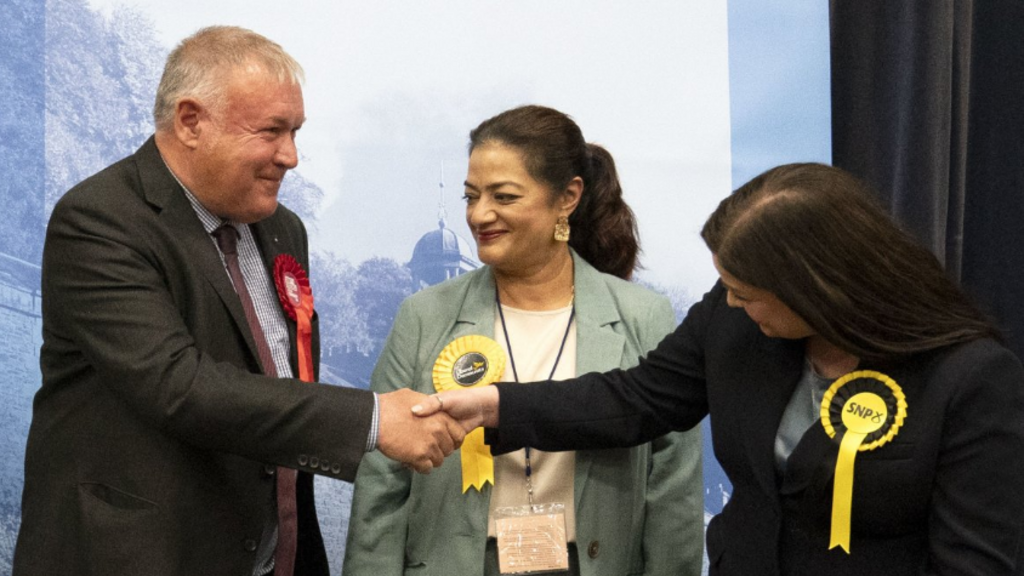Scottish Labour’s victory in the Hamilton, Larkhall, and Stonehouse by-election marks a significant achievement.
Their poll numbers have declined since last year’s general election, and they’ve faced criticism over UK Labour policies, such as cuts to winter fuel payments.
Despite these challenges, they secured the Holyrood seat from the SNP, a considerable boost for the party and its leader, Anas Sarwar.
Even after polls closed, the SNP expressed confidence in their victory, with leader John Swinney asserting only his party could defeat Reform in this constituency.
However, Labour’s Davy Russell secured the seat, defying expectations. While facing criticism for limited media appearances during the campaign, party insiders credit his local popularity for the win.
This victory, however, comes with caveats. Labour won a Westminster by-election in the same area less than two years ago with a substantial majority (approximately 9,500 votes), and a similar margin in the 2024 General Election. This time, their win was significantly narrower, around 600 votes, reflecting a decline in support.
Furthermore, this was a Scottish Parliament seat. The SNP’s long tenure in government (since 2007) often makes by-elections challenging for incumbents.
Nevertheless, Labour will undoubtedly celebrate this win. The close result, however, warrants further analysis.
Reform UK, finishing third with approximately 7,000 votes, performed strongly. This suggests a three-way contest, with Reform falling short of second place but still achieving a notable result.
This was Reform UK’s most significant Scottish campaign yet, including a visit from leader Nigel Farage, signaling their ambition for the next Holyrood election.
Voter discontent regarding cost of living, healthcare, and local infrastructure was evident, potentially impacting both SNP and Labour given their respective positions of power. Despite this, Reform couldn’t capitalize fully.
Given the similarity of this constituency to many others in central Scotland, the pattern of SNP/Labour/Reform competition might continue in the next election.
Reform’s rapid rise adds an element of unpredictability. The Scottish Conservatives, meanwhile, experienced a significant decline, securing only 6% of the vote, suggesting Reform’s impact is impacting their support base.
While Labour will celebrate this victory, achieving it required a substantial campaign effort (over 200 activists on polling day) resulting in only a narrow margin. The coming months leading up to the Scottish election promise further shifts in the political landscape.
This by-election highlights the increasing difficulty in predicting electoral outcomes.
Sign up for our Politics Essential newsletter for in-depth political analysis.
Factories at Falkirk and Larbert are under threat under relocation plans announced by Alexander Dennis
More cash for defence, computing and the development of carbon-capture technology are in the Spending Review.
The former net zero and energy secretary, tipped as a future SNP leader, rejoins the cabinet after maternity leave.
The fall-out from the SNP’s by-election defeat and a call for more football banning orders make the front pages.
A breastfeeding support service which has helped mums of newborn babies for a decade has closed down.

